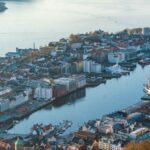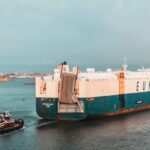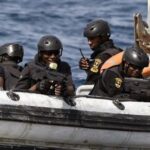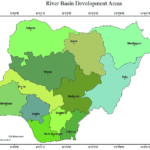T: +2347051423739
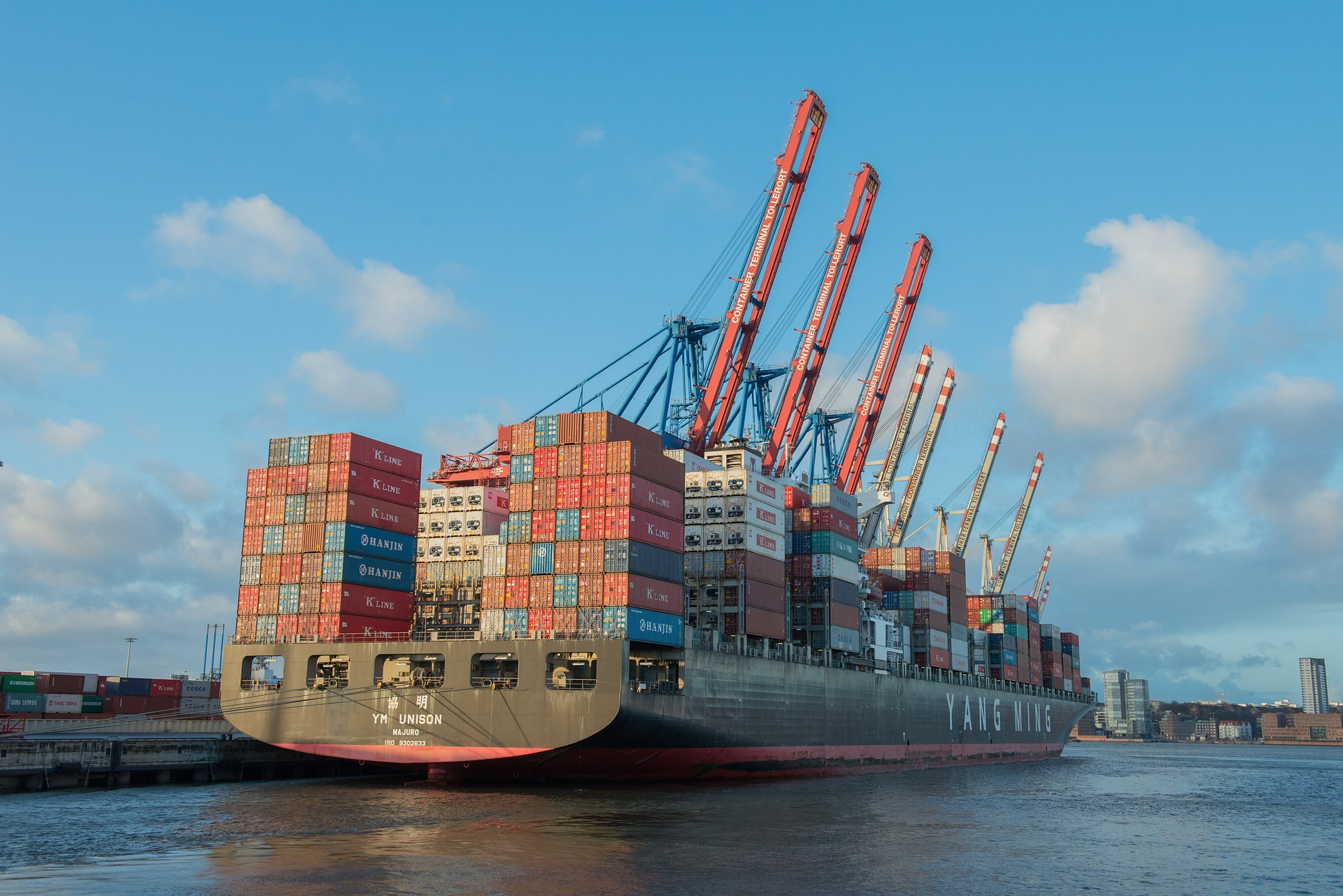
NIGERIA BLUE ECONOMY INFRASTRUCTURE
Officially, according to the Nigerian Ports Authority, Nigeria has six seaports : Apapa, Tin Can, Onne, Port Harcourt, Warri, Calabar. These are in four states out of possible nine coastal states. In a coastal stretch of about 850 kilometres, there are only four Seaport states with the only two ports in Lagos operating at anything close to full capacity with a spill over that has become the greatest logistical conundrum to the residents, Federal and Lagos State Government. The problem is so acute that in the last few years, the most important roads in the city of Lagos has become parking lots for Haulage vehicles waiting to load goods meant for other parts of the country that could or should have their own ports.
If we employ standard international metrics that “ports are strategically located at the edges of oceans, seas, rivers and lakes, that ports can either be natural establishments or man-made structures that provide for loading and unloading of cargo or passengers”. According to the authors of “Geography of Transport Systems“, the term “port” originated from the Latin “portus,” meaning gate or gateway, and it’s defined as the point of convergence between two domains of freight circulation – land and maritime (and sometimes passengers). The depth of water often dictates the size of ships that can enter a port and dock. Unlike terminals, ports can be monofunctionnal or polyfunctionnal, servicing the transit of mineral, energy and commercial tonnage.
Between Badagry at the far most west and Calabar at the far most east considering all the various tributaries, lagoons, lakes along the coast of the nine states bordering the Atlantic, there would or should be at least twenty seven functional ports of varying sizes serving a growing population that is rapidly approaching a quarter of a billion people. The historic port of Gele Gele in the old Benin Kingdom of Edo state is illustrative here of the importance of sea ports to commerce even for communities that might not be directly on the coast – sea Ports, inland ports, warm water ports, Dry ports serving interdependent function of feeding on one another. Olokola, the much publicized natural deep water seaport site located in Ondo state has one of the most detailed feasibility report ever done for a port in Nigeria but remains just a potential. The time for action on some of these potentials is now not only for their economic importance but equally for the dislocation their absence continue to have on the transport infrastructural integration of the economy.
One of the major components of the Blue Economy is tourism a term whose application is very elastic but in this case is the tourism associated to water transportation and adjunct ecosystems like ecotourism, ocean tourism, cruises and ocean voyage. Tourism, an activity closely driven by quality of life and availability of disposable income remains an aspirational endeavour in developing countries like Nigeria. There is no argument about the abundance of potentially world class tourism sites along the Nigeria Atlantic coast with natural sun drenched beaches for both local and international tourists. What is lacking and would need to be addressed are Hotels, holiday resorts positioned to specifically cater for the needs of both local and international tourists along this coast.
The beaches around Lagos as is the case with most things of course are exceptions when it comes to patronage because of its unique location and economic dominance. The relative security and availability of hotels and holiday resorts are not present on the rest of the stretch. The Lagos Bar Beach, while it may not be the most beautiful beach in Nigeria is the most popular because of its history. A beach at the very centre of the iconic Victoria Island that for a long time was the place to go until joined by Lekki beach which lately has become a favorite resort center with its extra white sands and the tall cocoa-nut trees and stunning waterfront.
In between Lagos and Calabar (853km), there are extremely beautiful virgin beaches dotted along this tropical coast that have neither been harnessed nor explored left primarily for the local fishermen for their daily harvest. The Calabar Beach again because of the relative sophistication of Calabar is one of the decent beaches in Nigeria with its own share of tourist attraction, matching the reputation of the City as perhaps the most beautiful City in Nigeria. With the popular Obudu cattle resort located at the center of the City, the beautiful enchanting calabar beach offers local and international tourists a taste of class and fun.
What is obvious in researching for material information about what would be needed for a proper take off of a Nigerian Blue Economy is lack of basic information on geographical, oceanographic matter that are necessary for making both logistic and investment decisions. The dearth of information becomes very apparent the moment you start to search and you are left with 18th century colonial surveys that were meant to meet the need of European mercenaries. Consequently, the security and management requirements of a blue Economy would necessitate a revamped security architecture that would involve a more robust engagement of the Nigerian Navy or creation of a specialized coast guard unit that would bring the southern border under control for a safe and secure Nigerian Blue Economy.


